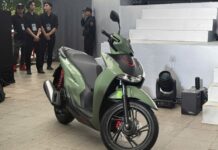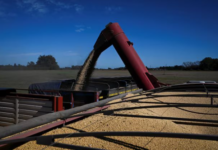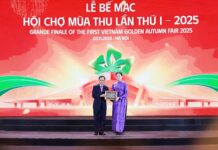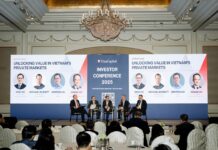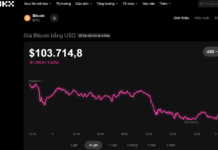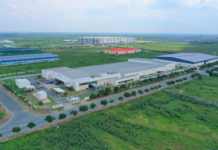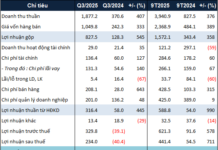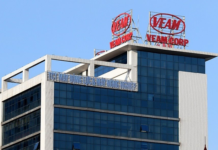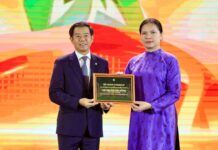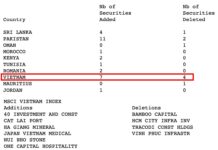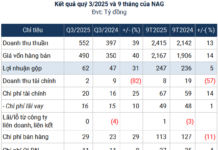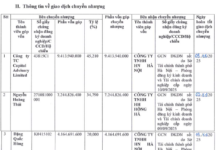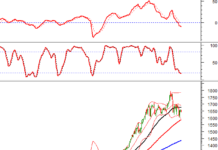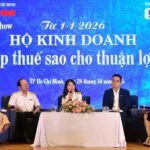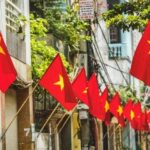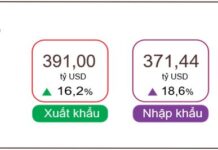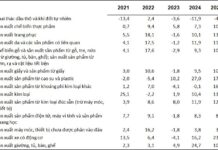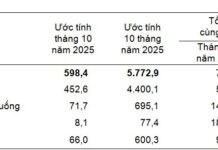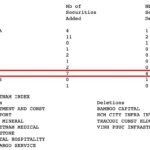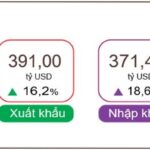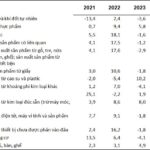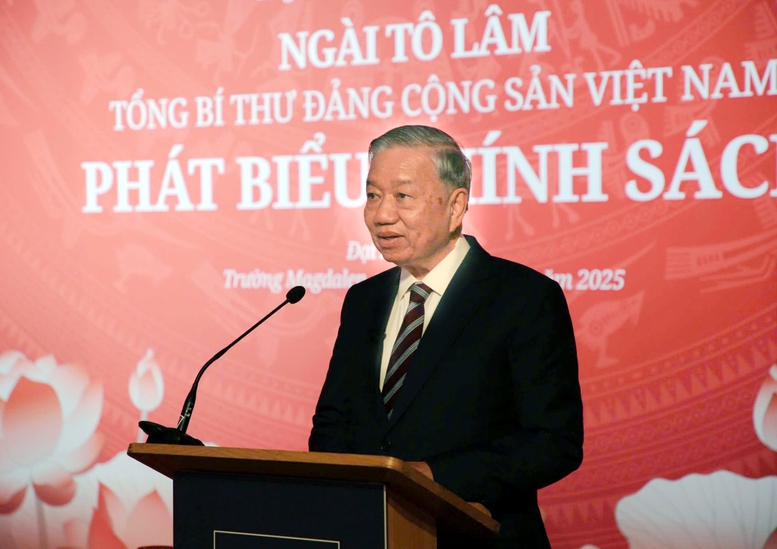
General Secretary Tô Lâm: Vietnam has chosen a very clear path: science and technology, innovation, digital transformation, and knowledge-based economy will be the main drivers of growth in the coming period.
Distinguished Principal, esteemed leaders of the University,
Dear professors, lecturers, researchers, students, and friends of Vietnam at the University of Oxford,
Ladies and gentlemen,
It is a great pleasure for the Vietnamese delegation and me to be here at this prestigious university, renowned for its long-standing tradition of fostering academic freedom and global intellectual liberation. Oxford, a leading global academic hub and a symbol of British intellect, has nurtured generations of individuals dedicated to peace, justice, and human progress.
Sharing Vietnam’s vision for the new era with you, especially with the young minds shaping the world’s future, and with future scientists and policymakers, is a great honor for us.
Today, I wish to address three key points: First, the world is entering a phase of intense strategic competition, fraught with risks but also new opportunities. Second, Vietnam has chosen a path of peaceful, independent, self-reliant, and innovative development, prioritizing people, not only to build a prosperous nation for its citizens but also to contribute responsibly to regional stability and the international rule of law. Third, the Comprehensive Strategic Partnership between Vietnam and the United Kingdom, the highest level of cooperation in Vietnam’s foreign policy, should and will become a new model of substantive, equitable, mutually beneficial, and developmental cooperation.
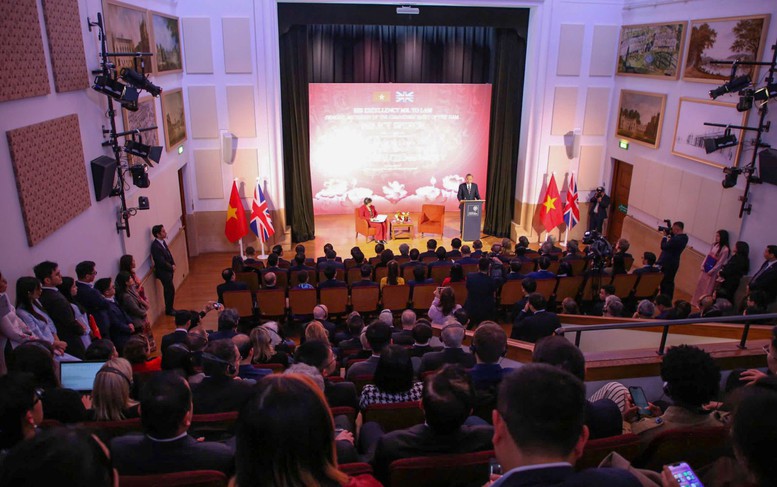
General Secretary Tô Lâm delivers a policy speech at the University of Oxford
Ladies and gentlemen,
We live in an era where borders and power dynamics are shifting daily, even hourly. The geopolitical landscape is marked by strategic competition among major powers, not only in political and security influence but also in economics, technology, supply chains, data standards, artificial intelligence, and biotechnology. The race for innovation, control of core technologies, clean energy, and digital infrastructure has become the new power struggle. Frankly, those who master strategic initiatives and control strategic technologies will shape the rules and likely emerge victorious.
Simultaneously, local conflicts, territorial disputes, maritime and cyber interests, and digital space clashes are increasing in frequency and complexity. Pressures to “choose sides,” “polarize,” and form alliances to counter one another are resurfacing in more subtle forms. New divides are not just territorial but also in data, technology, and value chains. The world seems to be simultaneously becoming more interconnected and more divided.
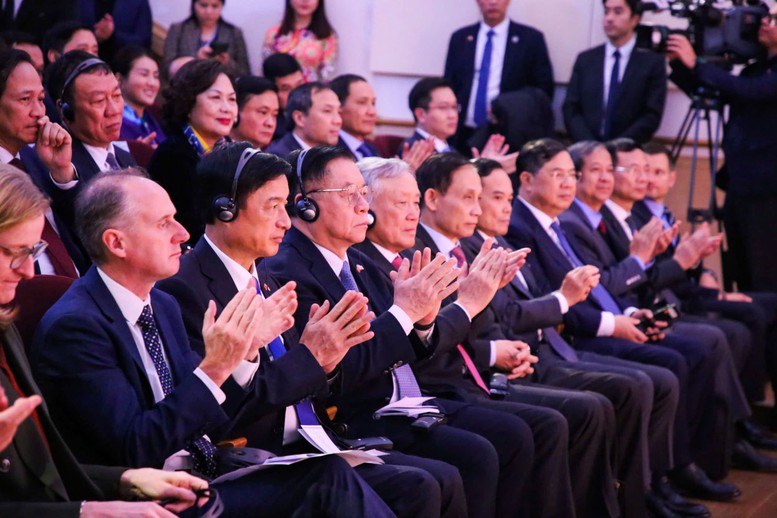
Delegates attend General Secretary Tô Lâm’s policy speech at the University of Oxford
Traditional and non-traditional security challenges are intertwined: energy, food, water security, climate change, global pandemics, cybercrime, and attacks on critical systems. No nation, large or small, can address these risks alone.
Today’s geo-economic competition is not just about markets, tariffs, or trade deficits. It is about securing strategic supply chains, access to critical minerals, and setting new technological standards. Many countries are adjusting industrial strategies, promoting self-reliance, diversification, and supply chain security. This is reshaping the global production map and investment flows.
In this context, the question for nations is not “whose side to take or where to stand,” but “how to stand firm and achieve self-reliance.” For Vietnam, this is a matter of survival.
Vietnam has chosen a path of peace, independence, self-reliance, and cooperative development. As a nation that fought for independence and paid a heavy price for peace, we deeply value peace. President Ho Chi Minh’s maxim, “Nothing is more precious than independence and freedom,” guides our actions. It is the foundation of our national ethos and principles in domestic and international relations.
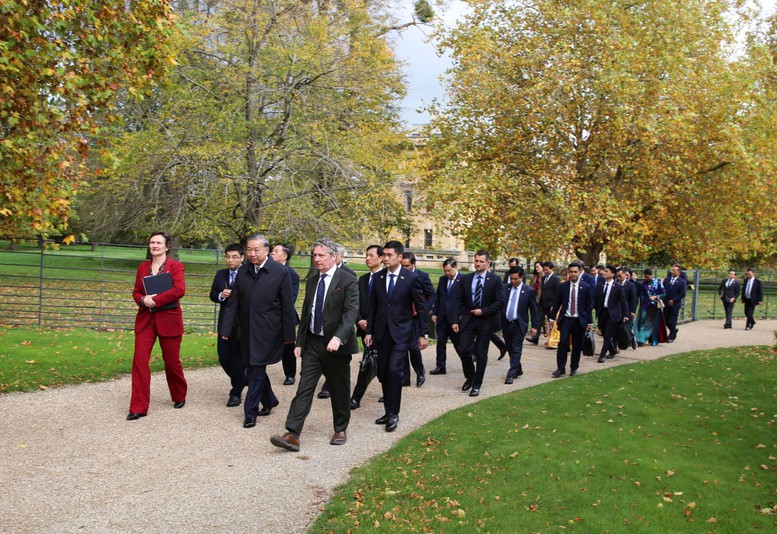
General Secretary Tô Lâm and the Vietnamese high-level delegation at the University of Oxford
In a world of competing pressures, Vietnam upholds an independent, self-reliant, and diversified foreign policy. We strive to be a trusted friend and partner, a responsible member of the international community. We aim to build internal stability and external peace, resolve differences through peaceful means and international law, and prioritize people’s well-being and legitimate interests.
We are committed to safeguarding our independence, sovereignty, and territorial integrity while creating an external environment conducive to development, improving citizens’ quality of life, and contributing to regional and global peace. We defend our nation through peace, international law, culture, and mutually beneficial cooperation. This is our proactive and responsible strategic choice.
Let me emphasize: Vietnam does not advocate confrontation. We do not pursue development through conflict or antagonism. We believe in equal dialogue, international law, and that sovereignty should be respected through mutual understanding and shared interests, not through force or coercion.
This spirit has enabled Vietnam to maintain socio-political stability, integrate into the global economy, and engage in new-generation free trade agreements, including with the United Kingdom.
Dear friends,
To achieve sustainable and proactive growth, we recognize that relying solely on natural resources, cheap labor, or demographic advantages is insufficient. Vietnam has chosen a clear path: science, technology, innovation, digital transformation, and a knowledge-based economy will drive our future growth.
We are vigorously pursuing a national digital transformation strategy, developing a digital economy, green economy, circular economy, and low-carbon economy. We view innovation as the lifeblood of our economy, enhancing national competitiveness and resilience against geopolitical and economic shocks.
This requires institutional reform. We are refining our “socialist-oriented market economy” model: a market-driven economy encouraging healthy competition and private sector growth, alongside state guidance to ensure social progress and equity, under the leadership of the Communist Party of Vietnam.
In essence, we see the private sector as the primary driver of economic growth; the state sector as a stabilizer for macroeconomic stability, economic security, and essential resources; and a lawful, transparent state as the foundation for public trust, efficient resource allocation, and equitable development.
We place people at the center of development, focusing not on growth statistics but on improving citizens’ quality of life: income, housing, public health, quality education, social welfare, personal development, and a safe, clean environment. We aim for growth without environmental compromise, industrialization without cultural loss, and urbanization that leaves no one behind.
This is Vietnam’s core development philosophy: rapid growth must align with sustainability; sustainability must be knowledge-driven; and innovation must benefit all citizens equally.
With this foundation, Vietnam has set two clear centennial goals. By 2030, marking 100 years of Party leadership, we aim to become a modern industrialized nation with upper-middle-income status. By 2045, celebrating 100 years of independence, we aspire to be a high-income developed nation with a modern economy, a civilized society, and a prominent global standing. These are our historic commitments to our people and the international community.
Dear friends,
Vietnam and the United Kingdom established diplomatic relations in 1973. Since then, despite geographical, developmental, and political differences, our relationship has grown significantly.
In 2010, we signed a Strategic Partnership Declaration, a major milestone expanding cooperation in politics, trade, education, science, defense, sustainability, and cultural exchanges.
Economic and trade ties have become increasingly strategic. Post-Brexit, we signed a bilateral free trade agreement ensuring trade continuity. The UK’s accession to the CPTPP, where Vietnam is a founding member, further strengthens our economic cooperation based on high standards in digital trade, intellectual property, and investment.
Education cooperation is a key pillar. Tens of thousands of Vietnamese students studying in the UK in fields from engineering to public policy exemplify our intellectual bridge.
Today, we are on the cusp of a new era: elevating our relationship to a Comprehensive Strategic Partnership, Vietnam’s highest diplomatic level. This underscores Vietnam’s view of the UK as a long-term strategic partner in shaping 21st-century cooperation norms.
Let me emphasize two points.
First, our relationship is one of friendship, cooperation, and mutual development. Both nations share a fundamental interest in maintaining peace, upholding international law, ensuring maritime freedom, protecting global supply chains, promoting fair and sustainable trade, and addressing climate change. This partnership aligns the UK’s Asia-Pacific engagement with Vietnam’s strategic expansion in technology, education, and finance.
Second, we need a new, practical, and measurable cooperation model benefiting both peoples. By “new model,” I mean combining the UK’s strengths in science, technology, healthcare, and education with Vietnam’s needs in digital and green transformation, workforce development, and institutional reform.
This goes beyond technology transfer; it is about co-creating the future. Oxford, with its tradition of connecting knowledge and policy, can play a vital role in this process. I envision four areas: (1) joint training and research in public health, biotechnology, AI, climate change, and clean energy; (2) policy exchanges between Vietnamese and UK think tanks; (3) innovation and tech startup support for Vietnamese SMEs; and (4) pilot projects in sustainable urban development, green finance, and digital healthcare.
If successful, the Vietnam-UK partnership will transcend political declarations, becoming a living network of knowledge and technology connecting Hanoi to London, Ho Chi Minh City to Oxford, and our peoples.
Dear friends,
Vietnam is entering a new development phase with a strong vision: a prosperous, compassionate nation with a modern, green, and smart economy, and a just, civilized society ensuring human security and comprehensive development. Our consistent goal is a “wealthy people, strong nation, democracy, equity, and civilization.”
We believe in the power of humanity. Throughout history, Vietnam has triumphed through righteousness, replacing brutality with benevolence. We believe a nation’s strength lies not only in military or financial power but in moral integrity, unity, and international trust.
We cherish peace, freedom, and development. We seek equal cooperation, reject coercion, respect international law, and aspire to a united world. We want shared global development.
In this spirit, I urge young Britons, researchers, innovators, civil society, and future policymakers to see Vietnam as a sincere, reliable partner in shaping a reordered world.
I am confident that a comprehensive, respectful, and mutually beneficial strategic framework will elevate Vietnam-UK relations, creating a successful model for peace, stability, and sustainable development in the 21st century.
Thank you. I appreciate the University of Oxford for providing this platform for open and objective dialogue toward a better future.
Thank you.
Elevating Southern Living: Văn Phú Brings the “Living for People” Philosophy to Southern Customers
At Văn Phú, our guiding philosophy is “human-centric real estate,” ensuring every project we develop harmoniously integrates people, environment, and space. This core principle is consistently embedded in our strategic development across key Southern market projects, setting a new standard for thoughtful and sustainable living.

